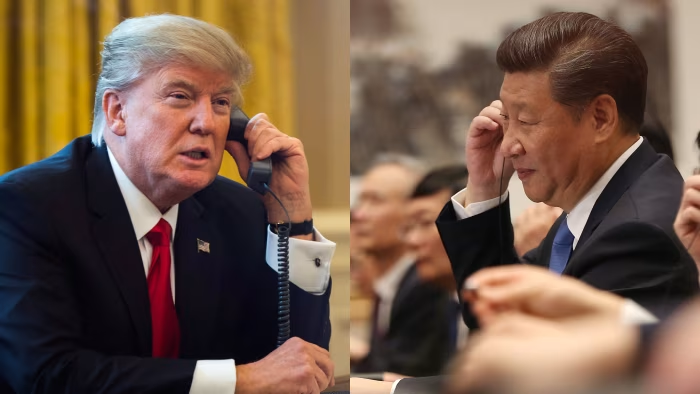China’s recent decision to restrict the export of key strategic metals—tungsten, bismuth, indium, molybdenum, and tellurium—has raised alarm, but it is more of a calculated move than an economic blow. This is the third time in less than three months that Beijing has leveraged its dominance over critical resources as part of an ongoing trade war with the U.S. The move comes after President Donald Trump hiked the tariffs, marking China’s intent to play a high-stakes game of negotiation with the United States.
Why It Matters: Escalating Trade Tensions Escalating Trade Tensions Last weekend, President Trump upped the trade war ante by raising tariffs on Chinese goods by an additional 10 percent. His rationale was to curb the flow of precursor chemicals contributing to the U.S. fentanyl crisis. In retaliation, China imposed export controls on several strategic metals, sending a clear message that it would use its resource dominance to retaliate and exert pressure on the U.S. to come to the negotiating table.
- Strategic Metals Targeted:
- Tungsten
- Bismuth
- Indium
- Molybdenum
- Tellurium
China’s Strategic Control Over Tungsten Of these metals, tungsten is the most critical. China dominates world supply; it produces 80 per cent of global tungsten and supplies 45 percent of U.S. imports. This metal is crucial to both military and civilian uses:
- Military applications: Tungsten is used in the manufacturing of armor-piercing rounds and other defense materials.
- Civilian applications: It is also essential for products like light bulbs, electronics, and electric vehicle batteries.
Must Read: Federal Ban Leaves TikTok Users in Limbo
Given its significance, the U.S. has tried to reduce reliance on China’s tungsten supply. In September, the Biden administration imposed a 25 percent tariff on tungsten as part of a broader strategy to disentangle U.S. industries from Chinese-controlled supply chains.
The Global Impact of China’s Export Controls China’s export controls on strategic metals impact global supply chains, but their full impact varies depending on the metal in question.
- Tungsten: The greatest strategic vulnerability, with a significant portion of U.S. imports sourced from China.
- Bismuth: China was responsible for 68 percent of U.S. bismuth imports from 2019-2022. Bismuth is used in a variety of industries, including cosmetics and pharmaceuticals.
- Indium, Molybdenum, Tellurium: These metals are critical for electronics, solar panels, and other technologies. However, the U.S. imports these materials from other countries such as South Korea, Japan, and Canada. Therefore, the export restrictions on these metals are largely symbolic.
China’s Strategy: A Targeted Hardball Approach The Chinese government has been outspoken on the issues, stating bluntly: “Export controls on tungsten and related items are a common international practice,” declared a commerce ministry spokesperson. While Beijing insists that it remains committed to fulfilling international obligations, including non-proliferation, the reality is that China is strategically using its dominance over these materials as leverage in trade negotiations.
- Targeted Hardball Strategy: This is a calculated approach by Xi Jinping to force the U.S. to address the underlying issues in the trade war. As Sean King, an Asia scholar, said: “This is an overdue wake-up call, and the U.S. should have long ago looked for alternative sources of critical minerals.”
What’s Next? While China’s actions have had a limited immediate impact on the global markets for most of these metals, the broader message is clear: there are no “winners” in a trade war. Both China and the U.S. have stressed the importance of dialogue, and the hope is that they will eventually find common ground.
- U.S. Strategy: As part of its efforts to reduce dependence on Chinese resources, mining companies, like Almonty Industries in South Korea, are working on alternatives to meet global demand for tungsten.
- Diplomatic Efforts: White House Press Secretary Karoline Leavitt mentioned that Trump is expected to speak with Chinese President Xi Jinping soon, though no details were provided on when that conversation might occur.
Conclusion: China’s export controls are a strong reminder of how resource control is becoming a critical component of the ongoing U.S.-China trade war. The targeted approach, with a particular focus on tungsten, highlights Beijing’s ability to use these strategic metals as a bargaining chip. As the situation unfolds, both countries will need to find ways to navigate these tensions without exacerbating the already volatile trade war.
In the meantime, industries around the world—particularly those reliant on metals like tungsten, bismuth, and molybdenum—are closely watching the outcome of these trade negotiations, understanding that the stakes have never been higher.
Key Takeaways:
- China’s Export Controls: Focused on strategic metals like tungsten, bismuth, and indium.
- Tungsten’s Strategic Importance: Critical for both military and civilian applications.
- U.S. Response: Imposed tariffs on tungsten and other metals to reduce reliance on Chinese supply chains.
- Global Impact: Limited impact on most metals, but tungsten remains a key vulnerability for the U.S.
- Looking Ahead: Trade negotiations between China and the U.S. may offer a path to de-escalation, though tensions remain high.
Note: This article is inspired by a Newsweek article.
























